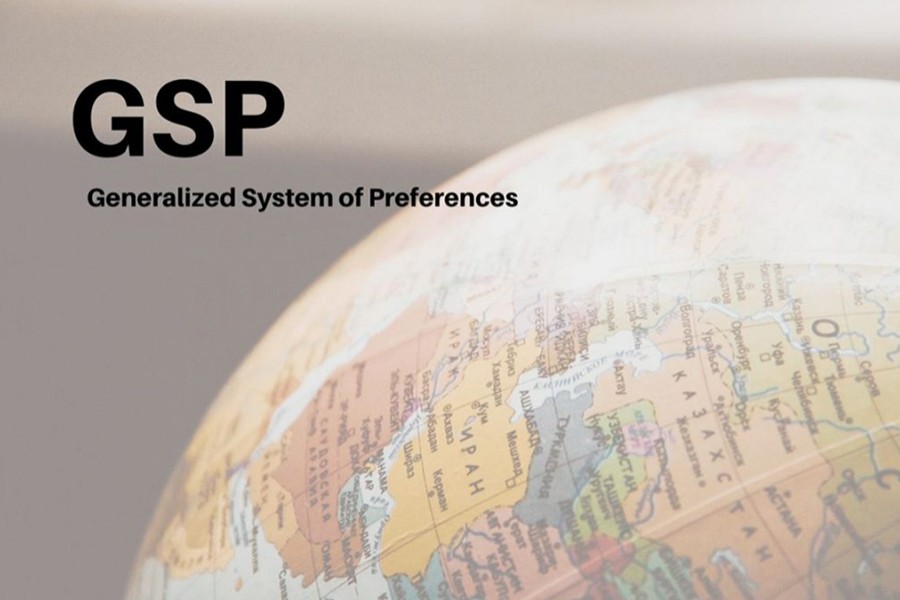
Published :
Updated :

About half of Bangladesh's entire merchandise export (more than 80 per cent of which comprises apparel items) is destined for the 27-member European Union (EU). From a mere USD 2.0 billion worth of export in FY2001, the country's export to the European economic bloc rose to USD 23.2 billion in FY2022-an increase of more than 1,100 per cent. The EU scheme of Generalised System of Preferences (GSP) that involve preferential duty-free and quota-free access of Bangladesh-origin products to the EU market under its Everything But Arms (EBA) initiative did play a crucial role in this success. Of course, being a member of the Least Developed Countries (LDCs), Bangladesh has been taking advantage of the relaxed Rules of Origin (RoO) and the unrestricted market access of its goods to the EU market. But there are challenges ahead. First, the current EU GSP regime will expire in December 2023 and is going to be replaced by a new one during the 2024-2034 period. Second, Bangladesh is set to graduate from LDC in 2026. Even under the current EU GSP scheme, after LDC-graduation, Bangladesh would not qualify for the EU's very attractive preferential treatment (under GSP+) being enjoyed by other non-LDC countries.
Notably, GSP+ allows duty-free access to a large number of non-LDC goods including clothing and textile items. However, under the proposed new EU GSP scheme for 2024-34, post-LDC Bangladesh might well be able to access GSP+ facilities. Also, given that the current EU GSP scheme allows for a three-year transitional grace period after Bangladesh's graduation in 2026, it can normally expect to enjoy the current zero-duty benefits till 2029. Even so, in the proposed post-2023 EU GSP regime, certain changes in the eligibility criteria might deprive Bangladeshi products of their accessibility to the facilities under the GSP+ dispensation.
Under the proposed new EU GSP regulation, there are the so-called 'safeguards', which risk excluding Bangladeshi apparel products now enjoying the zero-duty facility in the EU market. That means Bangladesh may be relegated to the World Trade Organization (WTO)'s so-called Most Favoured Nation (MFN) status, whereby as a WTO member, it (Bangladesh) cannot get any preferential treatment regarding duty or other facilities from another WTO member such as an EU nation. In that case, the tariff rate for Bangladeshi products, especially apparel items, in the EU market will rise from the present zero per cent to 12 per cent (MFN rate). In fact, the proposed new GSP scheme stipulates that if the combined share of HS Sections 61, 62 and 63 (a Harmonized Commodity Description and Coding System) that include knitwear, woven and home textile (defined as 'product group s-11b') exceeds 6.0 per cent of total EU imports, the said 'safeguard measures' will automatically exclude those items from the duty-free list. Interestingly, Bangladesh's exports to the EU under those HS sections have already crossed the bloc's 6.0 per cent threshold (actually, it is nearly 9.0 per cent). But that wouldn't still be a bar to Bangladesh's availing facilities under GSP+, had its share of knitwear, woven, and home textile (s-11b) exports (as a percentage of their import by EU under GSP-coverage) not exceeded 37 per cent (Bangladesh's share in that respect is already close to 50 per cent).
Euro Commerce, a EU body representing its retail and wholesale sector, has already expressed concern over the implications of the proposed new EU GSP scheme for Bangladesh. It suggested various measures including a transition period for post-LDC graduation countries joining the GSP+ regime before the proposed 'safeguards' are activated. In this situation, Bangladesh should earnestly engage with its EU partners and come up with mitigation measures to cushion its economy against the shock of the proposed new EU GSP scheme.


 For all latest news, follow The Financial Express Google News channel.
For all latest news, follow The Financial Express Google News channel.